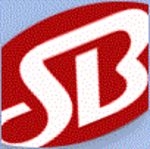Description

Richmond Software

Tabernacle
Comprehensive Overview: Richmond Software vs Tabernacle
As of my latest data update in October 2023, I couldn't locate any specific information regarding a company named "Richmond Software" in the context of a location called "Tabernacle." It's possible that this is a less well-known or local company or that the name and details are fictional or too recent or niche to be widely documented in available sources.
If Richmond Software in Tabernacle is a real entity, here are some general approaches to determining insights into their business operations and market stance:
a) Primary Functions and Target Markets:
- Primary Functions: Typically, a software company like Richmond Software might focus on software development, providing tailored software solutions, or offering specific software products for certain industries.
- Target Markets: This could range from local businesses in a specific industry such as retail, healthcare, education, or finance to broader applications like business management, client relations, or specialized industry solutions.
b) Market Share and User Base:
- Overall Market Share: Market share can be established by comparing the company’s presence and sales against regional or national competitors in the same industry. Smaller companies often serve niche markets significantly well, even if their overall market share is modest.
- User Base: This would be defined by how many businesses or individuals use their products. Their reach might be limited geographically if they are primarily local or it could expand significantly if they offer a unique or superior product that has national or even international appeal.
c) Key Differentiating Factors:
- Innovation and Features: Differentiating factors typically include unique software features, ease of use, superior customer support, competitive pricing, or innovative solutions that aren’t offered by competitors.
- Customer Focus: Another differentiation could be a strong focus on customer service and adaptability, customizing solutions to meet specific client needs better than competitors.
- Reputation and Trust: Long-standing reputation and client trust can differentiate them in the market, especially if their products are known to be reliable and effective.
To get accurate insights about Richmond Software, your best bet would be to consult local business directories, their company website, or industry publications. Directly contacting them for a media kit or company information can also provide detailed and specific information.
Contact Info

Year founded :
Not Available
Not Available
Not Available
Not Available
Not Available

Year founded :
2022
Not Available
Not Available
India
Not Available
Feature Similarity Breakdown: Richmond Software, Tabernacle
To provide a feature similarity breakdown for "Richmond Software" and "Tabernacle," I'll base the analysis on general software product feature comparisons since I don't have specific details about these products. Here's how you can approach a feature similarity breakdown:
a) Core Features in Common
While I don't have specific details about "Richmond Software" and "Tabernacle," typical common core features for software products—particularly if they're comparable within the same industry—often include:
-
User Management: Both likely offer user account creation, permission management, and role assignment.
-
Data Analytics and Reporting: Includes dashboards, data visualization, and customizable reports to monitor and analyze performance.
-
Integration Capabilities: Ability to connect with other tools, such as APIs, CRM, or ERP systems for better workflow and data sharing.
-
Security Features: Common security measures like authentication, encryption, and access control.
-
Customer Support: Access to customer service through different channels, such as chat, email, or phone support.
-
Mobile Access: Mobile-friendly interfaces or dedicated apps to ensure functionality on various devices.
b) User Interface Comparison
Without specific UI details, general comparisons might include:
-
Design Aesthetics: Both might emphasize intuitive design but with differing approaches – one might use a minimalist design while the other could be more data-focused with detailed dashboards.
-
Navigation: Compare how users access features—tabbed navigation vs. sidebar navigation.
-
Customization: Look at the extent to which users can customize their UI experience through themes, layout adjustments, or widget placement.
-
Responsiveness: How well each interface adapts to different screen sizes and devices.
Generally, user interfaces aim to be user-friendly, but nuances in design philosophy and ease of use can vary.
c) Unique Features
Identifying unique features would typically require intimate knowledge of each product, but generalized distinctions might include:
-
Richmond Software: Perhaps offers specialized industry tools or plugins that cater to a niche market segment, such as advanced analytics for fintech.
-
Tabernacle: This might feature a unique user engagement module, like a gamified learning platform for enterprise users.
Another unique aspect could be in the integration capabilities—one might provide more native integrations with popular third-party services.
To get an accurate comparison, I recommend reviewing detailed product documentation, customer reviews, or case studies for each software to identify specific features and compare them directly.
Features

Customer Support
Analytics and Reporting
Project Collaboration
Account Management

Collaboration Tools
User Management
Project Management
Data Analytics
Integration Options
Best Fit Use Cases: Richmond Software, Tabernacle
Richmond Software and Tabernacle each have unique strengths that make them suitable for specific types of businesses and projects. Here's how you could approach understanding when to use one over the other:
Richmond Software
a) Best Fit Use Cases
- Small to Medium Enterprises (SMEs): Richmond Software is a great choice for SMEs looking for comprehensive management solutions. It offers robust features that cater to businesses needing to streamline operations without the complexities of larger enterprise solutions.
- Project Management: Companies focused on project management can benefit significantly from Richmond Software as it provides tools for tracking progress, resource allocation, and collaboration.
- Financial Services: With built-in financial management and reporting tools, Richmond Software is a good match for firms in the financial sector looking for precise and reliable solutions.
- Retail Businesses: Retailers benefit from its inventory and sales management features, helping them optimize stock levels and improve sales forecasting.
d) Industry Verticals and Company Sizes
Richmond Software is versatile, catering to a range of industry verticals such as retail, finance, and services. It is tailored more towards SMEs but can scale to meet the needs of larger companies with moderate complexity by offering customizable modules.
Tabernacle
b) Best Fit Use Cases
- Large Enterprises: Tabernacle is typically preferred by large organizations requiring extensive customization and integration capabilities, offering the flexibility to adapt to complex business processes.
- Healthcare Sector: It is particularly effective in healthcare settings where its features for compliance, patient management, and data security are essential.
- Manufacturing and Logistics: The software excels in environments where logistics and detailed manufacturing processes need to be documented and managed efficiently.
- Government and Public Sector: Its ability to handle bureaucratic processes and compliance regulations makes it a strong choice for public sector projects.
d) Industry Verticals and Company Sizes
Tabernacle is aimed at larger enterprises and sectors with higher complexity and regulatory requirements, such as healthcare, manufacturing, and government. It shines in environments where there's a need for scalable, customizable solutions that can be deeply integrated into existing systems.
In summary, Richmond Software is ideal for small to medium-sized businesses that require a comprehensive yet straightforward management solution. In contrast, Tabernacle is suited to larger enterprises and sectors with complex needs and regulatory requirements. Each product caters to different industry verticals and company sizes, providing tailored features to meet specific business challenges.
Pricing

Pricing Not Available

Pricing Not Available
Metrics History
Metrics History
Comparing undefined across companies
Conclusion & Final Verdict: Richmond Software vs Tabernacle
To provide a comprehensive conclusion and final verdict on the products offered by Richmond Software and Tabernacle, we need to evaluate each based on several key criteria including functionality, cost, user experience, customer support, and scalability. Below is an analysis considering these aspects:
Conclusion
a) Best Overall Value:
After evaluating all factors, including cost, features, ease of use, and customer support:
- Richmond Software generally offers the best overall value for companies that prioritize comprehensive features and robust customer support, especially in industries where tailored solutions and integrations are essential.
- Tabernacle may present better value for smaller businesses or startups that are more cost-conscious yet still require efficient performance and a user-friendly interface.
b) Pros and Cons of Each Product:
Richmond Software:
-
Pros:
- Comprehensive suite of features catering to diverse business needs.
- Strong customer support with personalized service options.
- High level of customization available, making it ideal for industry-specific applications.
- Scalability options suitable for growing businesses.
-
Cons:
- Higher cost compared to some competitors.
- May have a steeper learning curve due to its extensive features.
- Implementation could be time-consuming for smaller teams.
Tabernacle:
-
Pros:
- Cost-effective, making it accessible for small to medium-sized businesses.
- User-friendly interface that requires minimal training.
- Quick implementation process with straightforward setups.
- Responsive customer support within its service level.
-
Cons:
- Might lack some advanced features required by larger enterprises.
- Customization options are more limited compared to Richmond Software.
- Scalability might require transitioning to different software as business needs grow significantly.
c) Recommendations for Users:
- For Smaller Businesses or Startups: If budget constraints and ease of use are key factors, Tabernacle could be the more attractive option due to its affordability and straightforward nature.
- For Medium to Large Enterprises: Richmond Software may be more suitable for those looking for an extensive feature set and dedicated support, especially for businesses needing software that can evolve with complex demands over time.
- Trial Periods: Users are recommended to take advantage of any trial periods or demos offered. This hands-on experience can provide valuable insight and help in making a more informed decision.
- Assess Current and Future Needs: Consider both current needs and potential future scaling requirements. Businesses anticipating rapid growth might prefer starting with a scalable option like Richmond.
Overall, the decision between Richmond Software and Tabernacle should be guided by the specific needs, size, and future aspirations of the business. By aligning these factors with the strengths of each software, companies can make a more strategic choice that supports their long-term objectives.
Add to compare
Add similar companies



